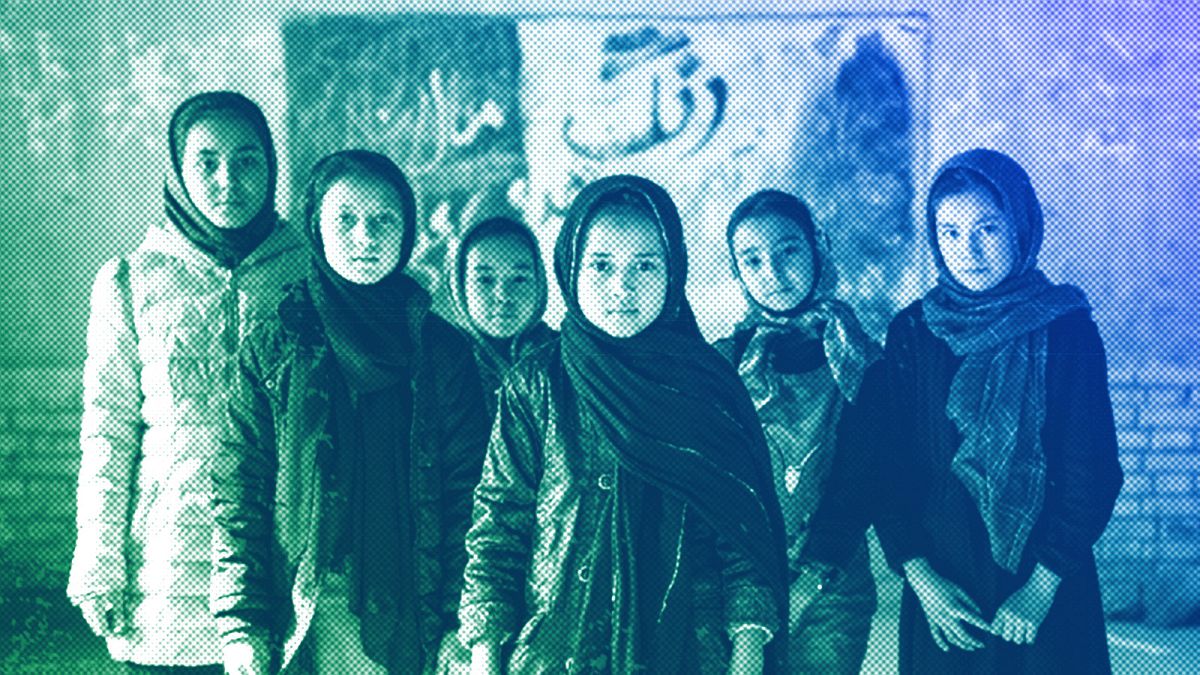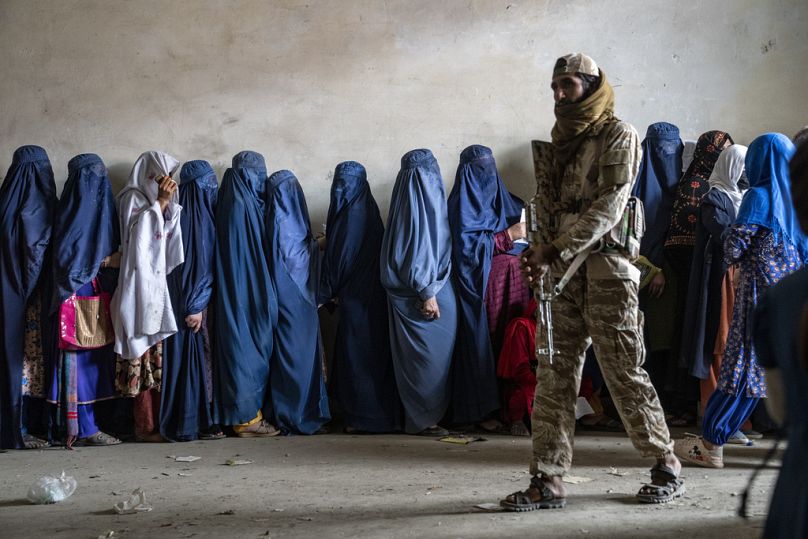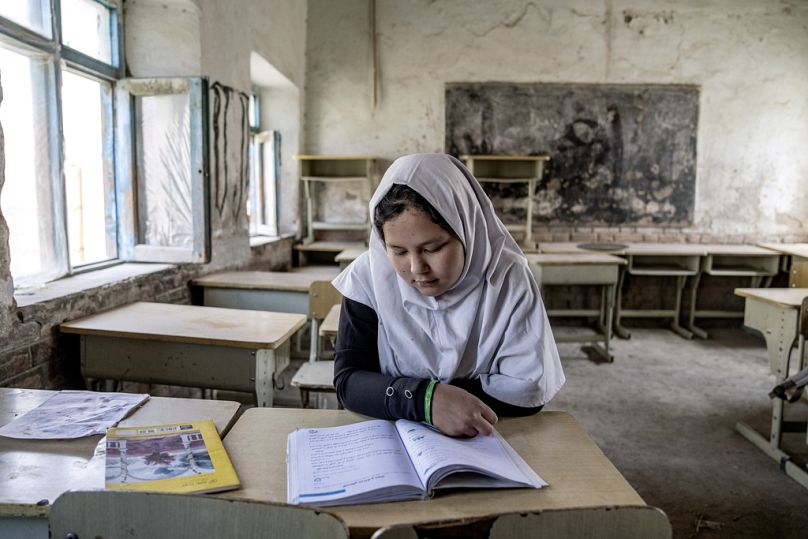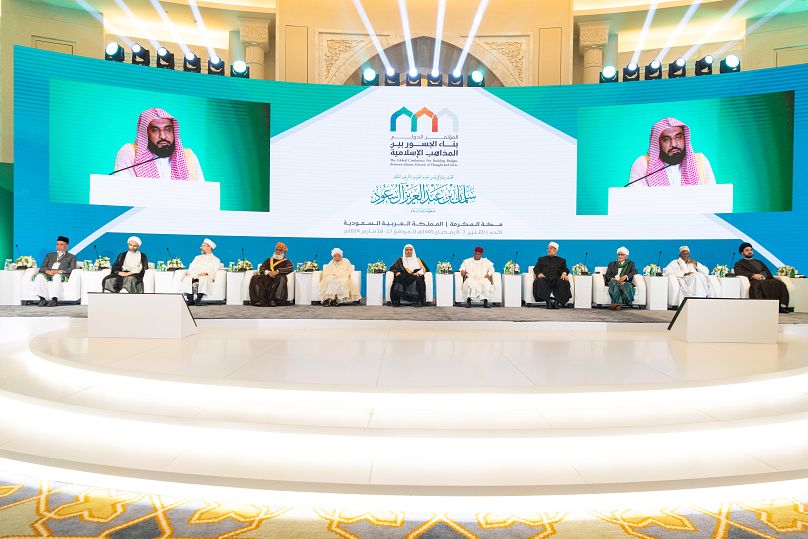The Taliban's authority hinges on their purported adherence to Islamic law. However, that is based on a fundamentally flawed, selective and extreme interpretation of Islamic texts, meaning their policies are against their own stated principles, Dr Mohammad bin Abdulkarim Al Issa writes.
Since the Taliban re-took power in Afghanistan in 2021, “women (have been) banned from gyms, public spaces, schools, university, and from most jobs.” They have marginalized Afghan women, hurting Afghan society in the process.
But now, a groundbreaking gathering last week reveals another uncomfortable truth for an already embattled government: the Taliban had little hope of engaging with the non-Islamic world. But they’re also fast losing confidence in the Muslim world, too.
Last week, during our most sacred month of Ramadan, and in our most sacred city of Mecca, we at the Muslim World League convened hundreds of the world’s leading Muslim scholars from all sects and denominations.
This historic gathering was a return to a venerable Muslim practice called ijma’ (consensus), and over two days, leaders representing the rich diversity of Islam took a defiant stand against sectarianism and condemned all practices that fail to represent true Islam.
This includes the Taliban’s ongoing mistreatment of women.
The Taliban's estrangement keeps growing
The Taliban have long defended their gender restrictions like preventing women from accessing education, through Islam.
However, hundreds of leading Islamic leaders forcefully rebutting such claims radically undermines their justifications, including the Taliban’s “inclusive Islamic Emirate”.
Our feelings towards the Taliban were clearly indicated in one of the articles of the Charter on Building Bridges Between the Islamic Schools of Thought and Sects, which underlined the importance of the family unit, access to education, and the protection of women’s rights.
In fact, all Islamic nations follow principles that the Taliban's ideologies starkly deviate from. Contrary to the Taliban's claims of facing opposition only from political figures, the reality is drastically different.
The fact that senior Afghan scholars attended the conference in Mecca and opposed the Taliban's stance highlights the group's growing estrangement from mainstream Islamic teachings.
This is why the Taliban must realign with the broader principles of Islam to avoid further isolation as extremists within the Islamic community.
This acute gender apartheid is still apartheid. What they dismiss as malign Western constructs is actually deeply rooted in Islamic teachings, values, and history.
No one has the right to take away women's right to learn
The Qur’an and hadith, the sayings and practices of the Prophet Muhammad, peace be upon him, make this clear. In the Qur’an, God describes human beings as rational, and nowhere in the Islamic tradition is the capacity for reason gendered.
The Qur’an not only describes women as the religious equals of men, but men and women as partners and protectors for one another. Not only that, but the Qur’an condemns discrimination against women once rampant in Arabia.
One of the reasons the Qur’an calls on “believing men and believing women” is to make clear that men and women have the same fundamental moral standing, the same essential moral rights, and the same basic moral responsibilities.
In fact, there is a well-known hadith in which the blessed Prophet Muhammad describes “seeking knowledge” as an obligation “for every Muslim,” which has always been taken to mean Muslim men and Muslim women.
Most intriguingly, the expression in Arabic, “talab al-‘ilm,” or “seeking knowledge,” is the root of the word Taliban. The origins of the movement’s name belie their own claims.
Learning is a responsibility we owe to God, which means it is a right no government can abrogate.
And it is an argument no Muslim can easily overlook, which is why we sought this ijma’, or consensus, in Mecca, following a long Muslim practice of seeking unanimity on core questions.
The Taliban can't dismiss our call
Throughout Islamic history, in fact, whenever we have faced new threats or the recurrence of religious distortions, Muslim scholars have come together to reaffirm our core commitments, even across our sectarian differences.
In Mecca, we followed that tradition once more. And the Taliban are no doubt paying attention.
While the West issues critiques of the Taliban’s excesses in a language unfamiliar to them, the Taliban cannot so easily dismiss our call.
The sheer number and diversity of Muslim scholars, from different parts of the world and different perspectives within Islam, undermines the Taliban’s claim to authority.
For these Muslim scholars are declaring their unanimous commitment to the place of women in religious life, including the right to education, work, worship, and movement.
The Taliban's authority hinges on their purported adherence to Islamic law. But in this instance, their adherence is based on a fundamentally flawed, selective and extreme interpretation of Islamic texts, meaning their policies are against their own stated principles.
The collective declaration by scholars in Mecca underscores a commitment to reclaiming the essence of Islamic teachings — promoting a vision of Islam that champions the rights and dignity of all individuals, especially women, who have been disproportionately affected by the Taliban's rule.
Aligning with Islamic principles would be true to our shared faith
This is as substantive a rebuke as possible. The Islamic Emirate is already isolated on the international stage, confronts neighbours like Pakistan, and now faces a lack of confidence from the Muslim world.
But it is not only a rebuke. For the interests of Afghanistan, and especially Afghan women, the Taliban should know we — the Muslim scholars from various global schools of thought and sects — are keen to work with them to align their policies with Islamic principles.
That would of course be in their interest. It would also be true to our shared faith.
The virtues we call for are not the property of the West nor restricted to any one part of the world.
The values we are calling the Taliban to follow are not imitations of Western culture but come from our sacred texts and traditions.
This is why we close with the first verse of the fourth chapter of the Qur’an, named simply, “Women,” which commands believers “to remember God, who created you from one soul, and from that soul a partner, and spread forth from those two many men and many women.”
Dr Mohammad bin Abdulkarim Al Issa is the Secretary General of the Muslim World League (MWL), the world’s largest Islamic NGO.
At Euronews, we believe all views matter. Contact us at view@euronews.com to send pitches or submissions and be part of the conversation.



